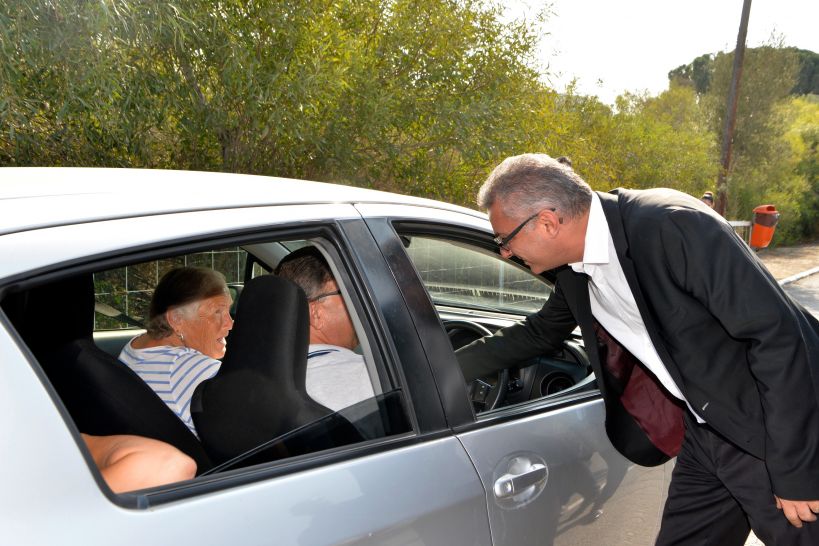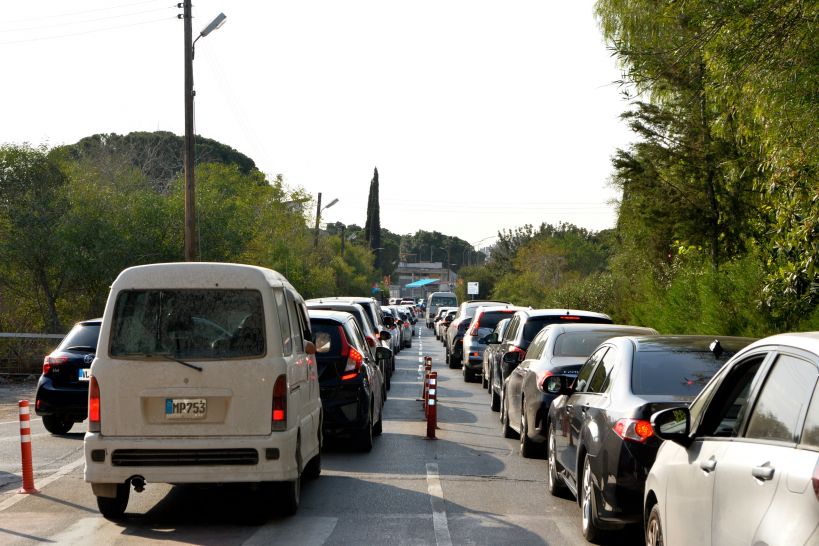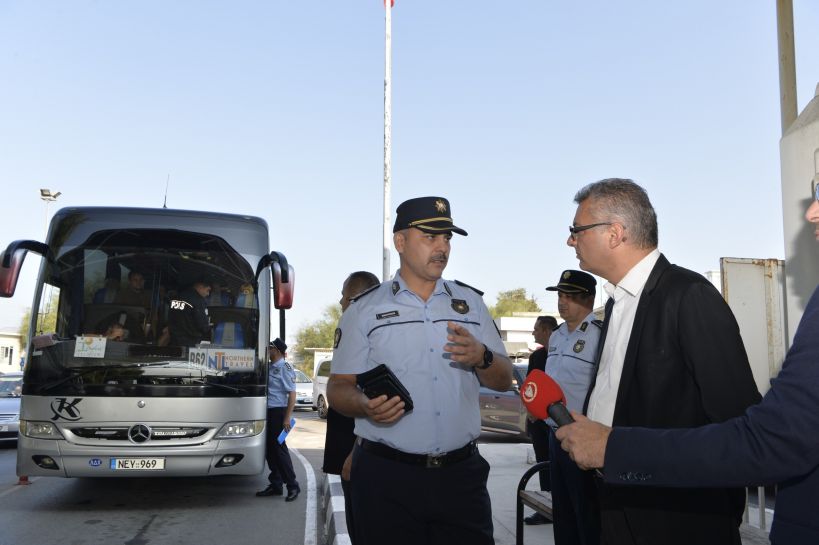Turkish Cypriot leader Tufan Erhurman on Wednesday called for a new crossing point to be opened to link the two sides of Cyprus’ divided capital, Nicosia, during a visit to the Ayios Dhometios crossing point – the only location at which civilian vehicles can cross between northern and southern Nicosia.
“The key solution to easing traffic congestion is the opening of at least one more vehicle crossing point in Nicosia. We will continue to work towards this goal,” he said.
He also called on the Greek Cypriot side to “open more booths and increase the number of attendants” on the southern side of the Ayios Dhometios crossing point.
Additionally, he asked that the Greek Cypriots “resolve technical issues” at the crossing points after the introduction of new software at the crossing points led to delays for Turkish Cypriots attempting to cross and even to some being turned away earlier in the year.
Regarding the northern side of Ayios Dhometios, he said work to install new infrastructure will begin next month, and that “discussions have begun with the United Nations regarding special measures which could be implemented to ease traffic congestion”.
His visit to the crossing point comes as the number of Turkish Cypriots using the nine existing crossing points only continues to rise, with the north’s central bank reporting an 11 per cent increase in the number of Turkish Cypriots crossing between the island’s two sides in April, May and June compared to the same period last year.
Those figures also follow on from the trend set by Turkish Cypriots in the first quarter of the year, when there was a jump of almost 23 per cent in the number of Turkish Cypriots using the crossing points compared to the first three months of last year.
The increase in southward crossings comes as the north overtakes the Republic in many aspects of its cost of living – particularly for regular foodstuffs such as meat and dairy.

Crossing points have been a central theme in the two enlarged meetings held on the Cyprus problem held so far this year, involving the island’s two sides, its three guarantor powers, and the UN.
After the first enlarged meeting, held in the Swiss city of Geneva in March, UN Secretary-General Antonio Guterres announced that four new crossing points would be opened, but subsequent discussions between President Nikos Christodoulides and Erhurman’s predecessor Ersin Tatar failed to produce results.
Christodoulides had favoured plans to open transit roads through the Turkish Cypriot exclave of Kokkina in the island’s northwest, and between Athienou and the Nicosia suburb of Aglandjia, while Tatar supported the idea of crossing points in the village of Louroujina, between Nicosia and Larnaca, and in the eastern Nicosia suburb of Mia Milia.
At the second enlarged meeting, held in New York in July, the Greek Cypriot side had floated the idea of a crossing point in Nicosia’s old town.
They suggested that one be opened on Lidinis Street, on which the Nicosia municipality centre for research, innovation, and entrepreneurship is located, and which backs onto the old ‘Bandabuliya’ municipal market, which is located in the north.

The Turkish Cypriot side rejected this proposal, though their rejection was sourced out of a matter of priority, rather than any resolute opposition to the concept as a whole or deeply held wish to slow the process down.
One Turkish Cypriot diplomatic source told the Cyprus Mail at the time that the idea of a new crossing point in Nicosia’s old town is “on the agenda”, but that “the Turkish side stated that the primary need was not pedestrian crossings, but rather easing vehicle traffic”.
It is expected that Erhurman and Christodoulides will meet for the first time in the coming weeks, with Erhurman having suggested earlier that the matter of crossing points need not be discussed at enlarged meetings, but instead be discussed by the two communities’ leaders locally.
“There is also Nicosia. It does not necessarily have to be New York or Geneva. Some issues do not necessarily have to be addressed at the 5+1 level. Crossing points, for example. After consulting with Turkey, the United Nations, the European Union, and, of course, Christodoulides, this process needs to be restructured,” he told the north’s public broadcaster BRT in his first interview after being elected last month.






Click here to change your cookie preferences